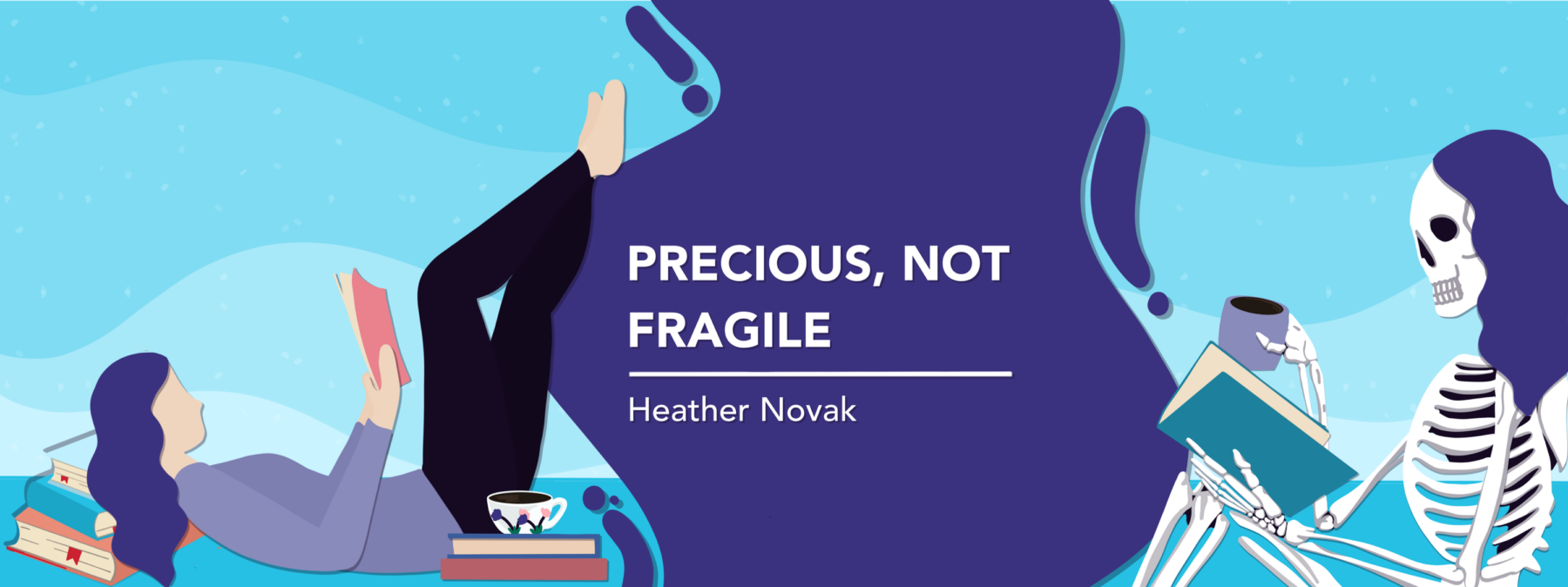Why it’s important to me to write books with disabled characters
My efforts to normalize mobility aids and accommodations
Written by |

Books have always been a constant in my life. I remember collecting “Goosebumps” by R.L. Stine and “The Vampire Diaries” by L.J. Smith, and I still have a few first editions on my bookshelf. From romance and Westerns to cozy mysteries and fan fiction on Archive of Our Own website, I’ve read thousands of words over thousands of hours. But I can still count on two hands the number of main characters with disabilities — who weren’t villains — that I’ve come across in books. Even fewer if I’m thinking about positive representation.
I love writing romance because it’s the genre of hope. A happily-ever-after or happy-for-now ending is the main hallmark of the genre, much like how a mystery novel must resolve its puzzle. That means no matter the obstacles, no matter how dire the situation, the characters will always succeed. Love will always win, and good will always conquer evil. Writing characters with disabilities who get to thrive and be happy, no matter their struggle, is incredibly powerful.
I want to normalize that characters with disabilities deserve happily-ever-afters, including those who use mobility aids. I want to demonstrate that people who aren’t able-bodied crave and deserve love, emotional and physical intimacy, and community. While I’ve yet to publish a book that has a character with my disease, hypoparathyroidism — I’ve tried to write it dozens of times, but haven’t found the right story yet — I still try to include myself in the book in some way.
Sometimes it’s a character with a cane and a hip injury, sometimes it’s a character who uses a wheelchair, and other times it’s a character with extensive and severe food allergies. I want any reader to pick up any of my books and see a person with a disability living their life, and maybe see themselves in a way I never did. I want a reader who may be unfamiliar with disabilities or mobility aids to learn something new. And I want accessibility to be blatantly addressed on the page, to show how people with disabilities navigate a world that isn’t built for them.
I rarely see a main character who’s ambulatory with a mobility aid in any kind of contemporary romance, be it book or film. There are a handful of historical romance heroes who nurse injuries from war, but the characters are always angry and aloof.
This lack of representation reinforces what society tells people: Mobility aids are only for those who are paralyzed, severely physically disabled, and older adults. And if I use aids in any other circumstances, I’m giving up and fulfilling the “angry, isolated victim” trope.
Which, quite frankly, is a blatant lie. Sure, I experience anger and frustration about having hypoparathyroidism, but a good amount of my anger stems from society’s inaccessibility. My frustration isn’t always about having to use a cane; it’s also about the “faking it” or “being dramatic” comments.
Mobility aids are simply what their name implies: aids to help a person be mobile. When I stopped being ashamed and embarrassed about needing to use them, it opened up opportunities to do so many more things I’ve longed to enjoy. Be it concerts, walking tours, or traveling, mobility aids help me save wear and tear on my body as well as energy, so I can enjoy life without completely decimating myself.
That’s not to say there aren’t lingering negative thoughts I have to combat, especially when I’m with people I’ve known for a long time who haven’t seen me use my aids before or who have outspoken and incorrect opinions about who should use them. The people who should use mobility aids are the people who will benefit from their use, full stop. I can’t help but wonder how different my life would’ve been if I hadn’t felt so much shame and anxiety about using aids, which cost me years of opportunities.
It’s my true hope that my books reach people who need support and encouragement. That these characters normalize mobility aids and special accommodations, not only to a person who’s struggling to ask for what they need, but also for the able-bodied people around them. Maybe someday, my books will change the world for the better.
Note: Hypoparathyroidism News is strictly a news and information website about the disease. It does not provide medical advice, diagnosis, or treatment. This content is not intended to be a substitute for professional medical advice, diagnosis, or treatment. Always seek the advice of your physician or another qualified health provider with any questions you may have regarding a medical condition. Never disregard professional medical advice or delay in seeking it because of something you have read on this website. The opinions expressed in this column are not those of Hypoparathyroidism News or its parent company, Bionews, and are intended to spark discussion about issues pertaining to hypoparathyroidism.






Leave a comment
Fill in the required fields to post. Your email address will not be published.